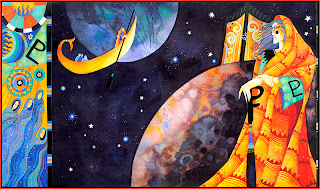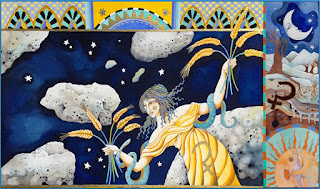The mythology of Pluto / La Mitología de Plutón.

Picture by/Imagen de Christina Balit Pluto was the ruler of the underworld in classical mythology. The earlier name for the god was Hades, which became more common as the name of the underworld as a place. Pluto presides over the afterlife. He is also a god of wealth, because mineral wealth was found underground, and ruled the deep earth that contained the seeds necessary for a bountiful harvest. Pluto's Roman equivalent were Dis Pater and Orcus, but a Latinized Pluto became the most common name for the classical ruler of the underworld in subsequent Latin literature and other art forms. Tributes of Pluto are his scepter, keys, throne, and horses, he also wears a cloak or helmet, which makes him go invisible. The best-known myth involving Pluto or Hades is the abduction of Persephone, also known as Kore or Proserpina (Latin). __________ Plutón era el gobernante del inframundo en la mitología clásica. Anteriormente era conocido con el nombre de Hades, pero el nombre de Plu...







